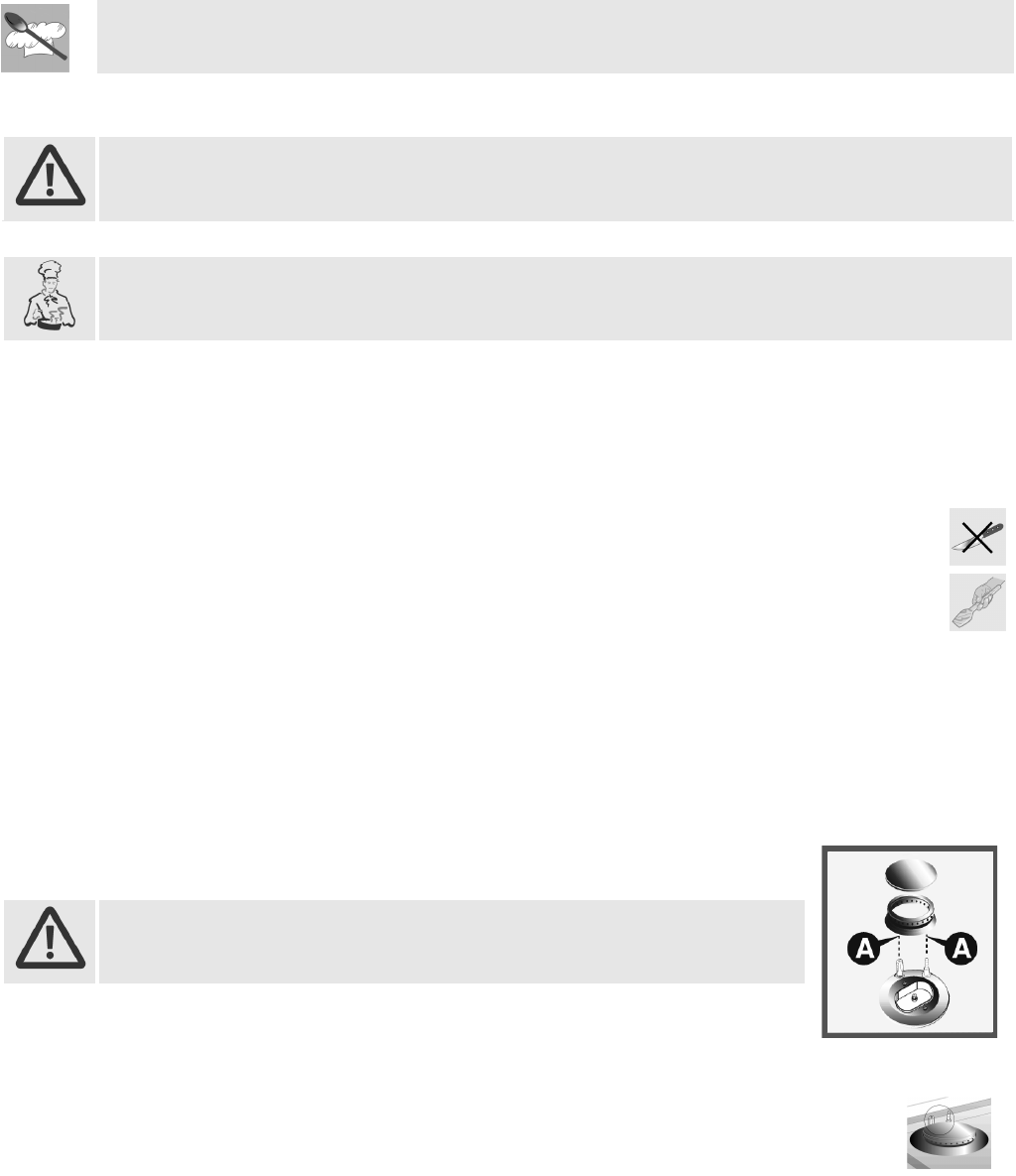
Instructions for the user
15
12.CLEANING AND MAINTENANCE
NEVER USE A STEAM JET TO CLEAN THE APPLIANCE.
12.1 Cleaning stainless steel
To maintain stainless steel in good condition clean it regularly after each use, once it has cooled down.
12.2 Ordinary daily cleaning
To clean and preserve the stainless steel surfaces, always use only specific products that do not contain
abrasives or chlorine-based acids.
How to use: pour the product on a damp cloth and wipe the surface, rinse thoroughly and dry with a soft
cloth or deerskin.
12.3 Food stains or residues
Do not use metallic sponges or sharp scrapers: they will damage the surface.
Use normal non-abrasive products for steel, and a wooden or plastic tool if necessary.
Rinse thoroughly and dry with a soft cloth or deerskin.
Do not allow residues of sugary foods (such as jam) to set inside the oven. If left to set for too
long, they might damage the enamel lining of the oven.
12.4 Cleaning of the hob components
12.4.1Grids
Remove the grids and clean them in warm water with a non-abrasive detergent, taking care to remove
any encrustations. Replace them on the hob.
Continuous contact of the grids with the flame can cause the enamel near the hot areas to be altered.
This is completely natural and does not compromise the functionality of the component.
12.4.2Burner caps and flame cap crowns
The caps and flame-spreader crowns are extractable to facilitate cleaning. Wash
them in hot water with non-abrasive detergent, taking care to remove any
encrustations, and wait until they are perfectly dry.
WARNING: do not wash these components in the dishwasher.
The burners can be left to soak in hot water and detergent.
Replace the flame-spreader crowns, checking that they are positioned in their
housing with their respective caps, taking care that flame-spreader holes A
correspond to the spark plugs and the thermocouples.
12.4.3The spark plugs and thermocouples
To function properly the spark plugs and thermocouples must always be clean (on the
models which are equipped with them). Check them regularly and clean with a damp
cloth if necessary. Any dry residues can be removed with a toothpick or a needle.


















